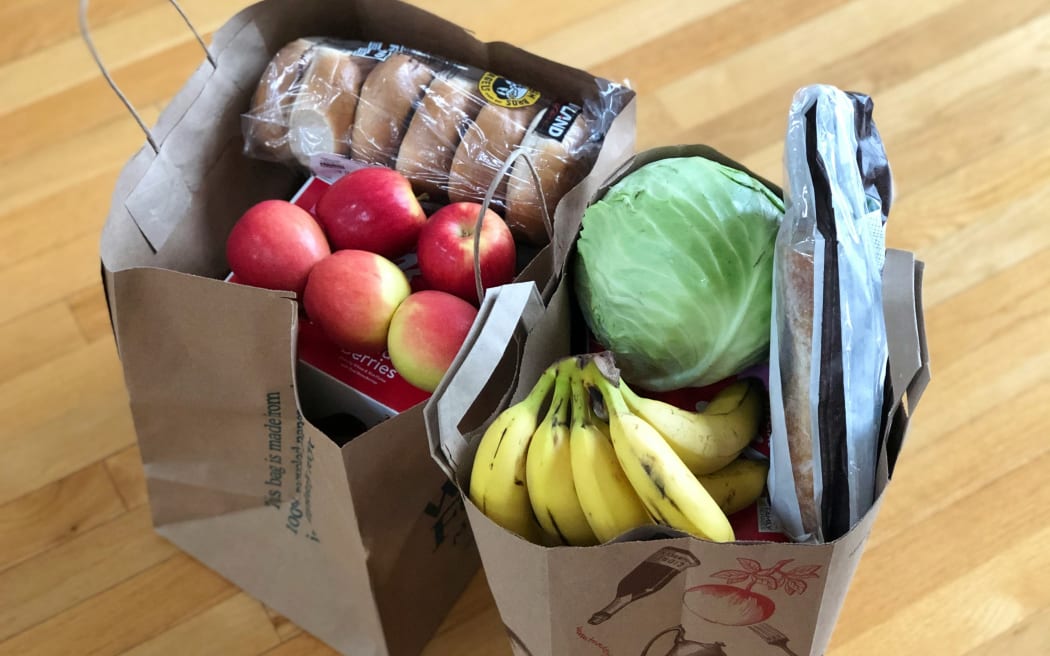Business
Food Prices Surge: Milk and Bread Costs Skyrocket in New Zealand

Food prices in New Zealand have seen a significant increase, particularly affecting essential items like milk and bread. According to data from Stats NZ, the combined cost of a loaf of sliced white bread and a bottle of standard milk rose from $4.35 in June 2006 to $6.58 in July 2023. This represents a substantial increase, especially concentrated in the past year.
In July 2015, the price for these items was $4.45, though the loaf measured was smaller by 100 grams. Last year, shoppers paid $4.05 for two litres of milk and $1.40 for bread, totaling $5.45. This July, the average prices were recorded at $4.70 for milk and $1.88 for bread, culminating in the current combined price of $6.58, which marks a year-on-year increase of approximately 20 percent.
The price of wholegrain bread has also seen a rise, increasing from $3.19 in 2015 to $4.33 this year. Those opting for soy milk have experienced less impact, as its price rose from $3.34 for a litre in 2015 to $3.84 this year.
Shamubeel Eaqub, Chief Economist at Simplicity, highlighted the dramatic shifts in grocery prices, noting that it was not long ago that $5 could cover both items. He remarked, “Now it’s like $6.60. The rising food prices are challenging to avoid. While people can substitute fresh produce for frozen options, staples like sliced bread remain essential for many households.”
Other key staples are also feeling the pressure. In a report released last week, Stats NZ indicated that food prices increased by 5 percent in the year leading up to July. Notably, milk prices surged by 16 percent, butter by 42.2 percent, and cheese by 29.5 percent. Over the past decade, the price of a kilogram of mince has risen from $13.35 to $21.97, while the cost of potatoes has escalated from $1.70 to $2.36 per kilogram. Rice prices have also increased, from $2.48 to $3.32 per kilogram.
David Verry, a financial mentor at North Harbour Budgeting Services, stated that the ongoing pressure of food prices on households shows no signs of relief. He emphasized that the rate of price increases is outpacing the growth of household incomes, which adds to the financial strain faced by many families.
Eaqub further explained that the price hikes are likely to continue due to persistently high global commodity prices. He noted, “Most supermarket prices take about six to nine months to reflect changes, meaning consumers could face even higher prices in the near future. These essential cost increases act as a significant tax on disposable income, impacting people’s ability to spend elsewhere.”
Agreeing with this perspective, BNZ Chief Economist Mike Jones pointed out that rising prices are diminishing household purchasing power. He added that despite some offset from decreasing interest rates and slowing rent and fuel inflation, the overall economic outlook remains cautious, particularly in light of a relatively soft labour market. “Most wage measures released in the June quarter indicate that the gap between wage growth and inflation is tightening,” Jones remarked.
As households continue to navigate the challenges posed by rising food prices, the implications for their overall financial health and purchasing decisions remain significant.
-

 World3 months ago
World3 months agoTest Your Knowledge: Take the Herald’s Afternoon Quiz Today
-

 Sports3 months ago
Sports3 months agoPM Faces Backlash from Fans During Netball Trophy Ceremony
-

 Lifestyle3 months ago
Lifestyle3 months agoDunedin Designers Win Top Award at Hokonui Fashion Event
-

 Sports3 months ago
Sports3 months agoLiam Lawson Launches New Era for Racing Bulls with Strong Start
-

 Lifestyle3 months ago
Lifestyle3 months agoDisney Fan Reveals Dress Code Tips for Park Visitors
-

 Health3 months ago
Health3 months agoWalking Faster Offers Major Health Benefits for Older Adults
-

 World3 months ago
World3 months agoCoalition Forms to Preserve Māori Wards in Hawke’s Bay
-

 Politics3 months ago
Politics3 months agoScots Rally with Humor and Music to Protest Trump’s Visit
-

 Top Stories3 months ago
Top Stories3 months agoUK and India Finalize Trade Deal to Boost Economic Ties
-

 Entertainment3 months ago
Entertainment3 months agoExperience the Excitement of ‘Chief of War’ in Oʻahu
-

 World3 months ago
World3 months agoHuntly Begins Water Pipe Flushing to Resolve Brown Water Issue
-

 Science3 months ago
Science3 months agoNew Interactive Map Reveals Wairarapa Valley’s Geological Secrets









